Dec. 17th Event: The Latest on Omicron, Boosters, and Immunity
Kira Peikoff was the editor-in-chief of Leaps.org from 2017 to 2021. As a journalist, her work has appeared in The New York Times, Newsweek, Nautilus, Popular Mechanics, The New York Academy of Sciences, and other outlets. She is also the author of four suspense novels that explore controversial issues arising from scientific innovation: Living Proof, No Time to Die, Die Again Tomorrow, and Mother Knows Best. Peikoff holds a B.A. in Journalism from New York University and an M.S. in Bioethics from Columbia University. She lives in New Jersey with her husband and two young sons. Follow her on Twitter @KiraPeikoff.

The Omicron variant poses new uncertainty for the vaccines, which four leading experts will address during our virtual event on December 17th, 2021.
This virtual event will convene leading scientific and medical experts to discuss the most pressing questions around the new Omicron variant, including what we know so far about its ability to evade COVID-19 vaccines, the role of boosters in eliciting heightened immunity, and the science behind variants and vaccines. A public Q&A will follow the expert discussion.
EVENT INFORMATION:
Date: Friday Dec 17, 2021
2:00pm - 3:30pm EST
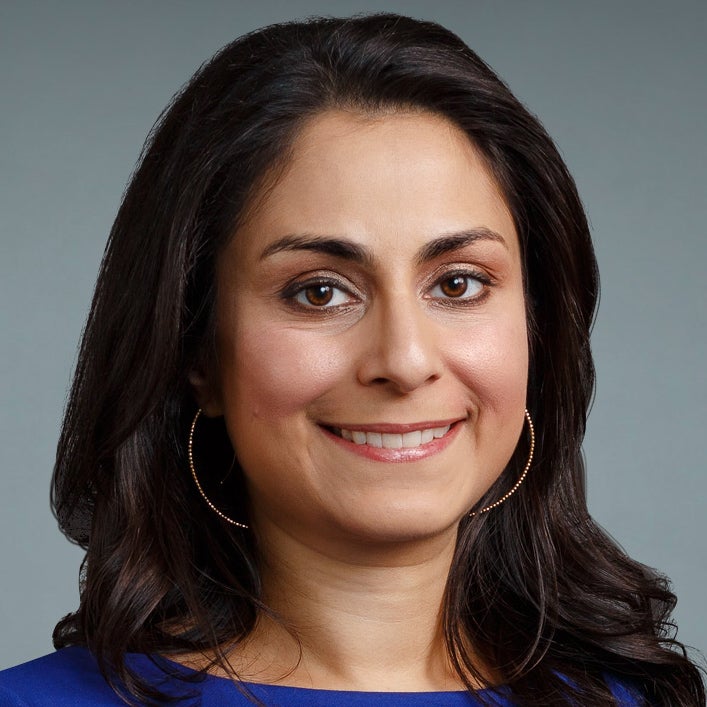
Dr. Céline Gounder, MD, ScM, is the CEO/President/Founder of Just Human Productions, a non-profit multimedia organization. She is also the host and producer of American Diagnosis, a podcast on health and social justice, and Epidemic, a podcast about infectious disease epidemics and pandemics. She served on the Biden-Harris Transition COVID-19 Advisory Board.
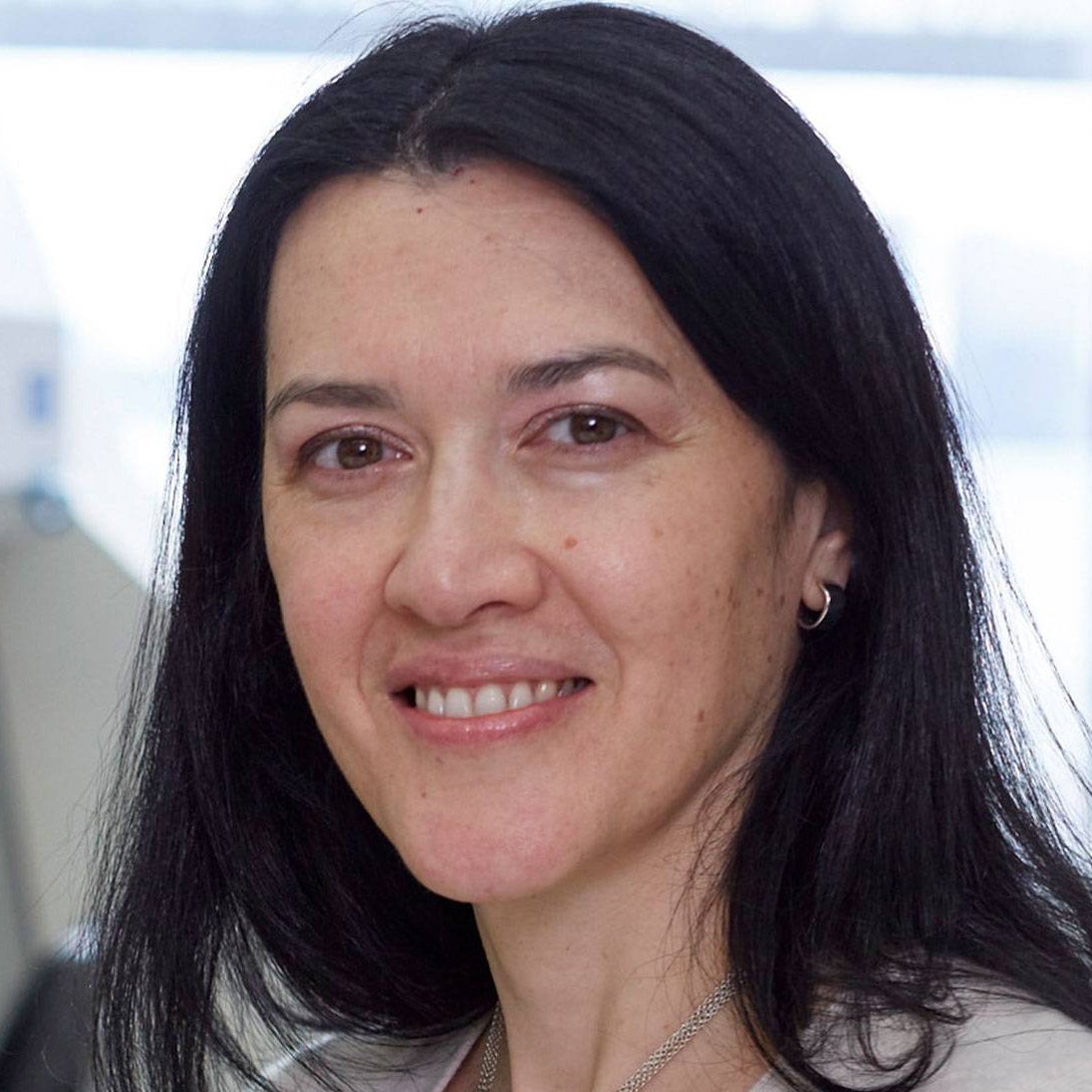 Dr. Theodora Hatziioannou, Ph.D., is a Research Associate Professor in the Laboratory of Retrovirology at The Rockefeller University. Her research includes identifying plasma samples from recovered COVID-19 patients that contain antibodies capable of neutralizing the SARS-CoV-2 coronavirus.
Dr. Theodora Hatziioannou, Ph.D., is a Research Associate Professor in the Laboratory of Retrovirology at The Rockefeller University. Her research includes identifying plasma samples from recovered COVID-19 patients that contain antibodies capable of neutralizing the SARS-CoV-2 coronavirus.
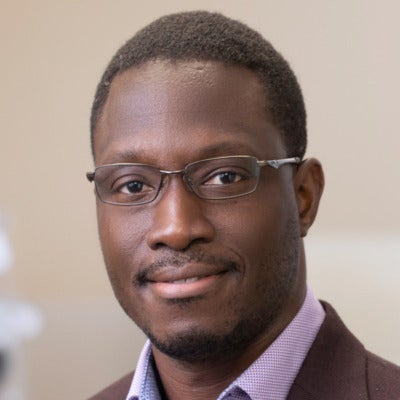
Dr. Onyema Ogbuagu, MBBCh, is an Associate Professor at Yale School of Medicine and an infectious disease specialist who treats COVID-19 patients and leads Yale’s clinical studies around COVID-19. He ran Yale’s trial of the Pfizer/BioNTech vaccine.
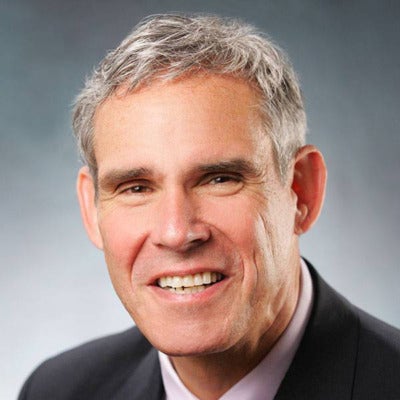
Dr. Eric Topol, M.D., is a cardiologist, scientist, professor of molecular medicine, and the director and founder of Scripps Research Translational Institute. He has led clinical trials in over 40 countries with over 200,000 patients and pioneered the development of many routinely used medications.
This event is the fourth of a four-part series co-hosted by Leaps.org, the Aspen Institute Science & Society Program, and the Sabin–Aspen Vaccine Science & Policy Group, with generous support from the Gordon and Betty Moore Foundation and the Howard Hughes Medical Institute.
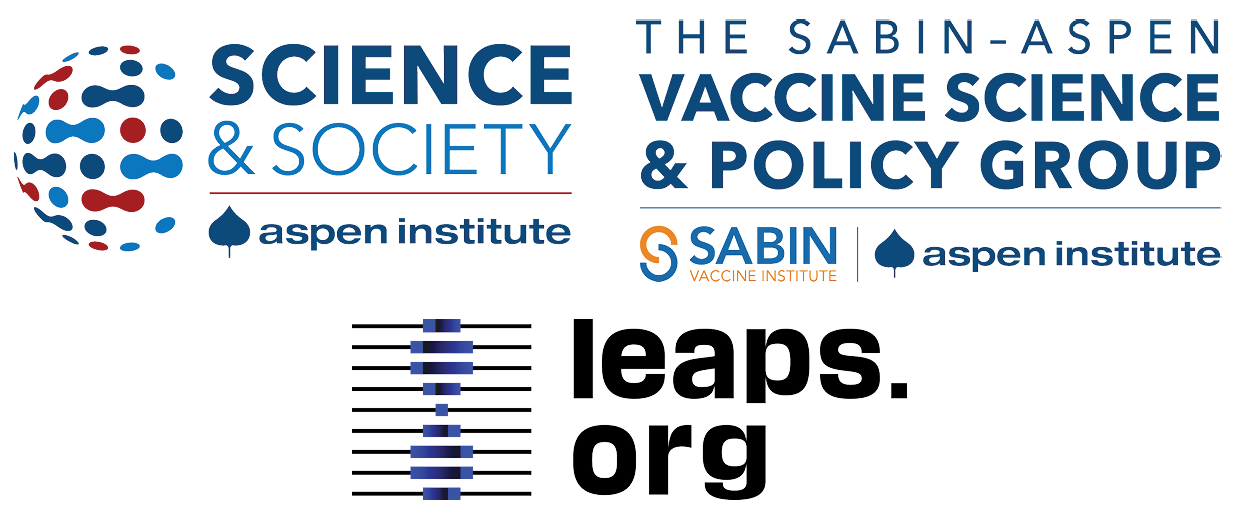
Kira Peikoff was the editor-in-chief of Leaps.org from 2017 to 2021. As a journalist, her work has appeared in The New York Times, Newsweek, Nautilus, Popular Mechanics, The New York Academy of Sciences, and other outlets. She is also the author of four suspense novels that explore controversial issues arising from scientific innovation: Living Proof, No Time to Die, Die Again Tomorrow, and Mother Knows Best. Peikoff holds a B.A. in Journalism from New York University and an M.S. in Bioethics from Columbia University. She lives in New Jersey with her husband and two young sons. Follow her on Twitter @KiraPeikoff.
30 Million People Are Uninsured. New Startup Wants to Connect Them Directly to Doctors.
A child visits the doctor for a checkup.
When Eli Hall was in his thirties, he had a kidney stone that needed surgery. Despite having medical insurance, his out-of-pocket costs for the procedure came to $4,000.
Mira promises that most routine visits will cost around $99 or slightly above.
Hall, an Arizona-based small business owner soon discovered that such costs were proving to be the norm. As a result, he stopped buying insurance altogether. Now he pays in to a subscription-based model of healthcare where $300 per month will get him, his wife, and two children unlimited access (either over the phone or through in-office visits) to doctors in the Redirect Health network. This subscription also meets the Affordable Care Act insurance mandate.
Hall's move away from the traditional insurance care model might have been deliberate, but not everyone is as lucky. In 2018, the Centers for Disease Control and Prevention reported that 30.1 million people under the age of 65 were uninsured in the United States. Now, a new startup called TalktoMira is helping those without insurance access doctors for routine visits — affordably.
The service, accessed through the website (or phone or text), evaluates a user's symptoms and returns recommendations for specific doctors that factor in wait times, traffic conditions, and pricing. Khang T. Vuong, the founder and CEO, expects that doctors will be willing to provide discounts through this model, as they're eliminating the administrative costs associated with the insurance middleman. Some discounts can be as high as 50 percent, according to the website.
Mira promises that most routine visits will cost around $99 or slightly above. "This provides people who can't afford paying $3,000 to $4,000 per year in insurance premiums an alternative to access basic healthcare," Vuong says.
As of press time, Mira is available in the Washington D.C., Northern Virginia, and Dallas, and will soon expand across the country via a partnership with a national network of healthcare providers.
"For those who live in places where we don't have a presence, users can still search for the nearest and least busy urgent cares. The goal is to build a national database of walk-in clinics with straightforward upfront pricing so the 30 million uninsured and 56 million underinsured have access to same or next day primary care at an upfront affordable cost," Vuong says.
Getting Around Traditional Insurance
Mira caters to the uninsured by helping them navigate the healthcare system the moment they need it. "Currently cash patients have to rely mainly on Google for searching for options," Vuong says, adding that patients do also occasionally work with the app ZocDoc for booking. "However [ZocDoc] info has no pricing information; we fill in that much-needed gap," Vuong says. In focus groups TalktoMira conducted, a majority (70 percent) reported cost of service as their main barrier to healthcare.
As Hall's subscription-based model proves, cash-driven access like TalktoMira is not the only option for the uninsured. Direct primary care like the kind that Redirect Health delivers is another way to get around high premiums. It does so by effectively eliminating the administrative costs associated with the middleman, says David Slepak, the director of business development at Redirect. Doctors who are tired of packed schedules and the administrative headaches involved with the insurance model are only too happy to be a part of subscription or cash-based models, explains Vuong.
But TalktoMira and direct primary care models don't resolve the challenges of insurance related to catastrophic events.
James Corbett, Principal at Initium Health, points out the uninsured can also access federally qualified health centers across the country or a free clinic, but these might have problems of long wait times.
"Not a Cure-All"
TalktoMira might not provide the same level of consistency that seeing a primary care doctor does, though Vuong says there are ways to see the same doctor again by choosing them through the system. He adds that TalkToMira also empowers patients by asking them about their satisfaction after the visit and to see if any further checkups might be warranted, thus enabling patients to rate their doctors just like they would any other service provider.
"I might not have one primary care doctor, but I have the entire system behind me," says Hall.
But TalktoMira and direct primary care models don't resolve the challenges of insurance related to catastrophic events. The subscription model won't kick in if the patient has a heart attack and needs to be hospitalized, for example. So patients are also encouraged to purchase a high-deductible, low-premium plan for such contingencies.
"We're spending so much on insurance for the car that we can't afford the gas to drive the car."
Vuong recognizes TalktoMira doesn't solve all the problems related to insurance, but it can at least start by helping to facilitate access to routine visits. Even the insured don't always seek out a doctor because of copays and high deductibles, Slepak says. "We're spending so much on insurance for the car that we can't afford the gas to drive the car," he says.
TalktoMira is hoping that by making routine care accessible, it might both lessen the crunch in emergency rooms where many people don't really belong, and also nip problems in the bud.
"It's not a cure-all, not a panacea," admits Vuong. "It won't get you a knee replacement. But at least I can get you in the system so you might not have to get to that point."
A couple holds up a picture of their ultrasound.
By now you have probably heard something about CRISPR, the simple and relatively inexpensive method of precisely editing the genomes of plants, animals, and humans.
The treatment of disease in fetuses, the liminal category of life between embryos and humans, poses the next frontier.
Through CRISPR and other methods of gene editing, scientists have produced crops to be more nutritious, better able to resist pests, and tolerate droughts; engineered animals ranging from fruit flies to monkeys to make them better suited for scientific study; and experimentally treated the HIV virus, Hepatitis B, and leukemia in human patients.
There are also currently FDA-approved trials to treat blindness, cancer, and sickle cell disease in humans using gene editing, and there is consensus that CRISPR's therapeutic applications will grow significantly in the coming years.
While the treatment of human disease through use of gene editing is not without its medical and ethical concerns, the avoidance of disease in embryos is far more fraught. Nonetheless, Nature reported in November that He Jiankui, a scientist in China, had edited twin embryos to disable a gene called CCR5 in hopes of avoiding transmission of HIV from their HIV-positive father.
Though there are questions about the effectiveness and necessity of this therapy, He reported that sequencing has proven his embryonic gene edits were successful and the twins were "born normal and healthy," although his claims have not been independently verified.
More recently, Denis Rebrikov, a Russian scientist, announced his plans to disable the same gene in embryos to be implanted in HIV-positive women later this year. Futuristic as it may seem, prenatal gene editing is already here.
The treatment of disease in fetuses, the liminal category of life between embryos and humans, poses the next frontier. Numerous conditions—some minor, some resulting in a lifetime of medical treatment, some incompatible with life outside of the womb—can be diagnosed through use of prenatal diagnostic testing. There is promising research suggesting doctors will soon be able to treat or mitigate at least some of them through use of fetal gene editing.
This research could soon present women carrying genetically anomalous fetuses a third option aside from termination or birthing a child who will likely face a challenging and uncertain medical future: Whether to undergo a fetal genetic intervention.
However, genetic intervention will open the door to a host of ethical considerations, particularly with respect to the relationship between pregnant women and prenatal genetic counselors. Current counselors theoretically provide objective information and answer questions rather than advise their pregnant client whether to continue with her pregnancy, despite the risks, or to have an abortion.
In practice, though, prenatal genetic counseling is most often directive, and the nature of the counseling pregnant women receive can depend on numerous factors, including their religious and cultural beliefs, their perceived ability to handle a complicated pregnancy and subsequent birth, and their financial status. Introducing the possibility of a fetal genetic intervention will exacerbate counselor reliance upon these considerations and in some cases lead to counseling that is even more directive.
Some women in the near future will face the choice of whether to abort, keep, or treat a genetically anomalous fetus.
Future counselors will have to figure out under what circumstances it is even appropriate to broach the subject. Should they only discuss therapies that are FDA-approved, or should they mention experimental treatments? What about interventions that are available in Europe or Asia, but banned in the United States? Or even in the best case of scenario of an FDA-approved treatment, should a counselor make reference to it if she knows for a fact that her client cannot possibly afford it?
Beyond the basic question of what information to share, counselors will have to confront the fact that the very notion of fixing or "editing" offspring will be repugnant to many women, and inherent in the suggestion is the stigmatization of individuals with disabilities. Prenatal genetic counselors will be on the forefront of debates surrounding which fetuses should remain as they are and which ones should be altered.
Despite these concerns, some women in the near future will face the choice of whether to abort, keep, or treat a genetically anomalous fetus in utero. Take, for example, a woman who learns during prenatal testing that her fetus has Angelman syndrome, a genetic disorder characterized by intellectual disability, speech impairment, loss of muscle control, epilepsy, and a small head. There is currently no human treatment for Angelman syndrome, which is caused by a loss of function in a single gene, UBE3A.
But scientists at the University of North Carolina have been able to treat Angelman syndrome in fetal mice by reactivating UBE3A through use of a single injection. The therapy has also proven effective in cultured human brain cells. This suggests that a woman might soon have to consider injecting her fetus's brain with a CRISPR concoction custom-designed to target UBE3A, rather than terminate her pregnancy or bring her fetus to term unaltered.
Assuming she receives the adequate information to make an informed choice, she too will face an ethical conundrum. There will be the inherent risks of injecting anything into a developing fetus's brain, including the possibility of infection, brain damage, and miscarriage. But there are also risks specific to gene editing, such as so-called off-target effects, the possibility of impacting genes other than the intended one. Such effects are highly unpredictable and can be difficult to detect. So too is it impossible to predict how altering UBE3A might lead to other genetic and epigenetic changes once the baby is born.
There are no easy answers to the many questions that will arise in this space.
A woman deciding how to act in this scenario must balance these risks against the potential benefits of the therapy, layered on top of her belief system, resources, and personal ethics. The calculus will be different for every woman, and even the same woman might change her mind from one pregnancy to the next based on the severity of the condition diagnosed and other available medical options.
Her genetic counselor, meanwhile, must be sensitive to all of these concerns in helping her make her decision, keeping up to date on the possible new treatments, and carefully choosing which information to disclose in striving to be neutral. There are no easy answers to the many questions that will arise in this space, but better to start thinking about them now, before it is too late.

